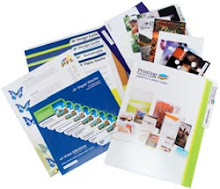 Making a Great School Yearbook Creating a great yearbook for your school is a fun and engaging project. Here are a few tips to get you started as well some suggestions for how you can save your school some money. In the process:
Making a Great School Yearbook Creating a great yearbook for your school is a fun and engaging project. Here are a few tips to get you started as well some suggestions for how you can save your school some money. In the process:Planning And Organization
1. Get your staff together and tightly organized as early in the school year as is possible. The sooner you start to divide and conquer the many tasks that are associated with putting together a yearbook, the better.
2. Make sure that you will have someone at each major event during the school year so that you will have maximum coverage. If you can only send one person, make it a photographer, and instruct him or her to take not only photos of the event itself but to get some photos of the students who were there supporting the event, and to feel free to snap away in this age of digital cameras. You should also teach your photographers how to take good notes for captions, such as whether the individual that is pictured won that particular match, or whether the team won the meet or not. It is the little touches like these that will save you a lot of time in the editing process, give you much more information to go on when you are writing your text, and teach your staff how to work together to create a great finished product.
3. Decide as early as you can what the overall theme is going to be for your yearbook. That way, your photographers and writers can keep their eyes out for shots and happenings that reinforce the theme.
4. When it comes to the overall design and layout of your yearbook, if you have students of staff who are good with design software programs, or are eager to learn, that's great. Let them work up an overall layout, etc. If you do not have any students will or able to take on the task of layout and design, keep in mind that there are lots of yearbook templates out there - plenty that are free - for you to work with. Just have a good look online and see what's available.
5. Deadlines are a part of life, and the sooner your staff understands that, the better. Let them know that their work may not be included in the book if they don't get it in on time, and be prepared to stick to the deadlines that you set.
Printing And Binding
Depending on the types of facilities that are available at your school, you may either be printing and binding your yearbook on campus or sending it away. There are advantages to both methods, but if your school or district is perennially on a tight budget, you should really look into purchasing your own hardcover binding machines and supplies and having your students do the work themselves. Thermal binding, as this process is called, is an inexpensive and easy way to create permanent hardcover books by yourself. In some cases, in print runs that are over 300 or so, you can save around 75% per book by doing it all in-house. In some cases, there are government subsidies available for purchasing these types of machines. In any event self-publishing you school yearbook is well worth looking into.n a Budget





0 comments:
Post a Comment